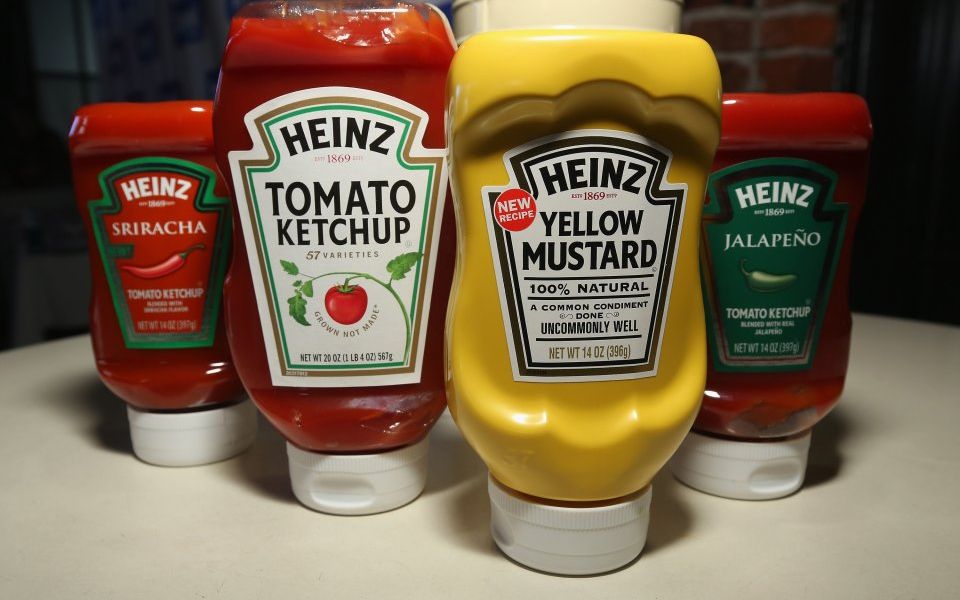Can banning ketchup really improve a footballer’s level of performance?

Manager Maurizio Sarri has already made an impression on his new Chelsea team.
They have won five of their opening six Premier League matches, and his philosophy of moving the ball quickly and intensive pressing – dubbed “Sarriball” – has led to the west London club making more passes than any other team in the top flight this season.
He has also reversed some of the rules his introduced by his predecessor Antonio Conte. Sarri has granted the squad more time off in the mornings and scrapped the requirement that players stay together at a hotel the night before games rather than at home with their families.
The Italian has even lifted a ban on ketchup, returning the popular condiment to Chelsea’s cafeteria.
Conte has a reputation for being a disciplinarian and his rejection of tomato sauce could be seen as another manager's quirk, up there with Sir Alex Ferguson preventing Manchester United youth players from wearing coloured boots.
Celebrated Leeds coach Marcelo Bielsa has earned a reputation and the nickname El Loco from strange behaviours, including waking up a teenaged Mauricio Pochettino in the middle of the night to measure the future Tottenham manager's leg before signing him for Newell's Old Boys.
But Conte was by no means the first football manager to ban ketchup.

Maurizio Sarri has been praised by Chelsea players for his laid-back approach and attacking football (Source: Getty)
Fabio Capello banned ketchup as part of his wider crackdown on player behaviour during his unsuccessful spell as England manager.
Fellow Italian Paolo Di Canio didn’t care for the tomato condiment either and banned it from the training ground. During his disastrous 13-game run as Sunderland manager he is also said to have banned ice, mayonnaise and singing in the shower.
All of which raises the question: is ketchup incompatible with a healthy footballing diet? Or just part of an image of ultra-discipline which some managers like to convey?
Rick Miller, a London-based clinical sports dietitian and founder of www.rick-miller.co.uk, says ketchup shouldn’t be a priority issue for athletes.
Although its sugar content and additives are not helpful to a footballer’s diet, in Miller’s view, most condiments are perfectly fine in moderation, with olive oil or balsamic vinegar a healthier option.
“Frankly, it’s one of the least problematic issues in a professional footballers’ diet. ‘Not seeing the wood for the trees’ is the phrase that springs to mind,” he says.
With increasing focus being put on the man-management skills of head coaches, Miller even thinks that having a popular condiment could work as a morale booster for players struggling with regimented diets.
“Allowing high-quality condiments can enhance the taste of blander foods and encourage healthier eating habits,” he says.

Possibly banning condiments like ketchup could just be part of nutritionists looking for the smallest gains in a player's diet to improve their performance (Source: Getty)
Carli Wheatley, founder of London fresh food diet shop Protein Haus, agrees that it could brighten somebody’s health plan.
“A little ketchup on some chicken or eggs when dieting can be an adherence saviour,” she says.
But Wheatley believes too much ketchup could have a negative effect on elite performance and that aiming for an organic diet can be beneficial.
“It’s a refined product with calories that also contains sugar,” she adds. “I think most people now are looking to have the most natural diet possible.”
In an era of meticulous planning, it isn’t a surprise that some managers are suspicious of the condiment. But perhaps Sarri, a smoker and one of the more laid-back managers in the Premier League, has found the right balance in ditching the Draconian methods and leaving responsibility to the players themselves.